Interview
INTERVIEW: Why Lagos govt is establishing new universities – Governor Sanwo-Olu’s adviser, Tokunbo Wahab.
Published
2 years agoon
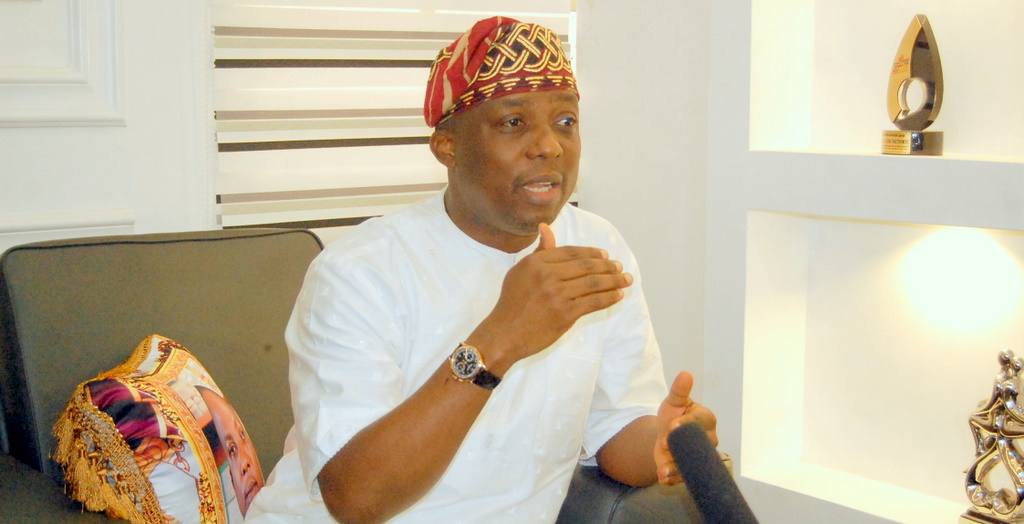
In this interview, the special adviser on education to Governor Babajide Sanwo-Olu, TOKUNBO WAHAB, speaks on why the state government is establishing two new universities
At a time when Nigerians are calling for improving existing public universities, the Lagos State government wants to establish two new ones. Is that a wise decision?
Basically, it’s about changing the landscape backed by available data and doing the needful for the state’s residents and Nigerians in general. Mr Babajide Sanwo-Olu’s T.H.E.M.E.S Agenda is very clear and explicit. It stands for Traffic Management and Transportation, Health and Environment, Education and Technology, Making Lagos a 21ST Century Economy, Entertainment and Tourism, and Governance and Security. We have education and technology as the pillars.
When we came in, in 2019, we checked the key performance indicator (KPI) and the data showed that two of our tertiary institutions – Adeniran Ogunsanya College of Education (AOCOED), Ijanikin, and Michael Otedola College of Primary Education (MOCPED), Epe, were not performing at the optimum. They both had a combined enrollment of just about 5,000 as of December 2021. Yet, they were receiving roughly N5.5 billion annually as subvention.
We found out that to train an NCE student per year costs about N600,000. But what is the worth of the NCE certificate itself? We have recruited teachers back to back within the last three years of this administration and I can tell you that our criteria even say you must have a bachelor’s of education (B.Ed) and not just NCE.
So you juxtapose this with the situation where the best students always want to go to universities, while the rest struggle to choose between polytechnics and colleges of education. Yet, the poor ones who opt for NCEs would be handed the children of the best to train in future when they manage to become teachers.
Also, statistics from the Joint Admissions and Matriculation Board (JAMB) revealed that in 2020, out of 574,782 candidates that applied to sit the Unified Tertiary Matriculation Examination (UTME) from the six states in the South West, Lagos State alone accounted for almost half of the figure at 240,829. But Lagos State has a single state-owned university while Ondo has three and Ogun, two. Not until recently when Osun and Oyo states went their separate ways on the Ladoke Akintola University of Technology (LAUTECH), Ogbomoso, the two also had more than one state-owned university. The implication is that our students from Lagos continue to struggle to gain admission to universities because other states usually introduce classification based on indigeneship.
Meanwhile, our only hitherto state-owned university, Lagos State University (LASU), Ojo, couldn’t admit more than 5,000 at a go, yet the applications are very high in number. So, with this number, it is apparent that we have a ticking time bomb at hand which we felt we must address frontally.
We also have the issue of discrimination against HND holders, and as a state, there is little we could do because addressing such a policy issue lies almost entirely with the federal government. Except if you go for conversion, with a HND certificate you may not move beyond level 15 in the civil service.
So, sincerely yours, we need to call a spade a spade; NCE, OND and HND are simply no longer relevant. The discrimination against them in the labour market is too much. And if I should ask, why do you think the British, which bequeathed this system of education to us, scrapped its polytechnics more than 30 years ago? It is because they saw the future ahead of time. And it is even worse for NCE. We are recruiting people for our secondary schools in Lagos and we are asking them for Bachelor’s degrees in education. You must have a B.Ed or diploma in education. So it is unfortunate but that is the reality of our time. The 21st century has gone beyond NCE holders. In fact, there is a report that says by 2020, 20 per cent of the jobs that will be available will be for degree holders.
So, consequently, we had to draft the law, approach the House of Assembly, and thankfully, Mr Governor insisted that we must convince everyone and I am glad the Rt. Honourable Speaker agreed with us and bought into the vision. So we are happy that today, we have dotted all the “Is” and crossed all the “Ts”. We now have two additional universities in Lagos State.
So by phasing out the state’s polytechnic and colleges of education, what happens to the middle-level manpower that will be required in the new Lagos?
We are not oblivious of the fact that we would need skilled workers as middle-level manpower. But the reality is that we have found ourselves in a system that is too crazy about certificates. We cannot continue to keep schools that will eventually have no enrollment. So what we have done is to return to the past when we used to have strong technical colleges where the future of skilled workers can be prepared. We are currently ramping up our investment in technical colleges. In the first quarter, we are going to have about 50 comprehensive technical colleges.
In the past, if you had a flair for handwork, they would train and certify you. But these days, all our artisans are now foreigners. Today, if a child doesn’t have the capacity to go to the university, the parents will still force the child to sit UTME, they will bribe to write WASSCE and push them there, and they will begin to struggle from first year. But with the technical colleges, we are trying to find a way to bring the old culture back, which we think will reduce the pressure on the university system because they could set up their businesses from there.
Beyond physical infrastructure, there are other academic criteria to be met before institutions can be upgraded to the status of a university. Do these schools have the required number of PhD holders?
Our academic brief has the details on that. For instance, between AOCOED and MOCPED, we have about 53 PhD holders when we merge them together, while LASPOTECH has about 60 PhD holders with about 30 others still pursuing their PhD in various fields. That is why we said there would be a transition period. For those that are not qualified yet, we will give them a definite window period to complete their PhD programmes. Meanwhile, they will still be lecturing in the subsisting structure of OND and HND programmes until the last set of students on the programmes graduates.
The major stumbling blocks to similar upgrades of institutions in the past have usually been the fate of the workers. How much assurance of cooperation do you have with the workers?
For us, since we now have the recognition, the implementation now goes to the issue of recalibrating the workers, re-classifying them, which is key. We have been engaging them for a while now, and we have assured them that the bigger picture should be the most important to us all.
Some of them who are chief lecturers don’t even have students to challenge and task them. But since the position of chief lectureship doesn’t exist in a university structure, they will have to be reclassified and adjusted to suit a system that will accommodate them in a new nomenclature. That’s what we are trying to do.
Now, the engagement is still ongoing and I can assure you that everyone understands what it takes to adapt to life situations. Everybody just has fears – fears of what would happen to my job, can I survive in a new structure? And surprisingly, a chief lecturer earns more than a professor in a university. I found that out in the course of this transmutation exercise. So we have said to them that once they are reclassified, nobody will take their money but they must be ready to be adaptable to this wheel of progress.
So for us, we have said no one will be jobless, except it is expedient that there is nothing we can do about it. And that may happen when we have to merge the two colleges- AOCOED and MOCPED, and we eventually have excess faculty, then others should agree to go somewhere else. But we want to make it as seamless as possible, and as painless as possible.
What happens to the students currently running the ND, HND and NCE programmes?
Now, for the students, if you come in for a university degree, they will give you lectures under the university platform. For the hitherto existing programmes, they will continue to run until they finish. And for the NCE in particular, the two affected institutions were already running degree programmes in partnership with various universities including University of Ibadan, Ekiti State University, among others. So they already have the structures in place. What is left is just for them to own the programmes instead of running them in affiliation with other universities. So what we have done is that rather than cutting corners, they are now empowered to stand straight and acquire the required human resources and relevant tools.
You just mentioned acquiring tools and human resources, where will the huge resources needed come from?
I am very glad and proud to say that to avoid any itch, the government insisted on a reasonable take-off grant and there is a budgetary allocation for them in the 2022 budget. The take-off grant is very substantial but I would not be specific here.
Let me also say confidently that this governor in the past two years has ramped up the infrastructure deficit and tried to bridge the gap even in LASU. You can go and find out. Contractors have been mobilised to sites to give all these institutions a befitting world-class look.
In LASU for instance, the faculty of education is one of the biggest of the faculties, and so the new faculty of education being built will be one of the best in the country. And then, at the end of 2021, contractors were also mobilised to build a world-class tech hub there. It will be multifaceted and multi-disciplinary so that you can have space there.
When the governor came in 2019, he increased the tertiary institutions’ subventions across the board and even gave them bailouts. One or two of them, with due respect, are owing pension funds. So we need to know who diverted the funds. You can’t ask for a bailout without telling us who touched the funds. We can’t do things the same way and expect a different result.
But we can confirm to you that students are still cramped together in certain classes in LASU, especially with the introduction of stream one and two sets. How do you now justify the creation of additional universities?
Now, realistically, when you have infrastructure deficits, you don’t bridge it overnight. We have a very deliberate attempt to bridge it. We have done and are still doing that for LASU. So many structures are currently and simultaneously being put up, including those that had been abandoned for more than 13 years, such as the library building, among others. Because we understand that the government is a continuum, we have taken it upon ourselves not to leave any project abandoned. The three universities and other tertiary institutions are currently enjoying massive investments in infrastructure but we agree that we cannot do everything at once. And for your information, doing all these has in no way affected the sub-sectors of education, be it primary, secondary or other levels of tertiary education, such as the school of nursing and school of health technology. The governor has even taken up some responsibilities that ordinarily should be handled by the state’s universal basic education board (SUBEB).
What the governor has just done is to be deliberate in his approach. Yes, we agree there is a deficit but within two and a half years of this administration, more than 1,000 schools have been uplifted and he is not even stopping at that. But the result will not come overnight, realistically. And I will tell you why. We have over 18,000 private schools in Lagos State, why are they thriving? Because they have seen a gap, a niche, a market and that market is because most of us, elite, with due respect, through the years, deliberately killed public schools. I am a product of a public school, you are a product of public school. Go to your hall of residence in OAU, compare it to when you were in school. Even then, it was not as good, but today it is just totally bad. I went to UNIBEN and when we got to its law faculty where we were trained, people were weeping. What happened? Government took its eye off the ball. What happened to the federal government colleges? Go back there today, you will be shocked.
Now if you would agree that the existing universities are in bad shape, why should we continue to build new ones instead of fixing the old ones? Do you agree with ASUU’s request that new state-owned tertiary institutions should not benefit from TETFund grants in their first 10 years of existence?
For me, if I had my way, I would say don’t just start giving them grants in their first years of establishment. Maybe 10 years may be too wide for the window, maybe for the first two and a half years to be sure that they can even sustain such institutions. Take, for instance, we are setting up two universities as a state, and I can give you the details and our sustainability plan. We know the enrolment number, the existing schools’ internally generated revenues, how much we give them as subvention. So I believe it is in order to stop new public universities from accessing TETFund grants until we are sure of their sound footing.
Meanwhile, I am of the opinion that the existing policy that only professors should be vice-chancellors should be tinkered with. I believe professors should face academics and they can come in to function as deputy vice-chancellors in charge of academic matters. This is what we see in other parts of the world.
How affordable will the new universities be for the children of the common man on the streets of Lagos?
I can assure you that the fees will be as affordable as possible. And I am saying this because I know that, all over the world, university education is not cheap. But we are subsidising because we understand that the economy is poor and the social structure is really not there to help the people. For instance, LASU charges N57,000 for freshers. So, before the first set of students will come in, the schools will do the numbers to determine it.
Let me also give you an insight; do you know how much these schools currently charge for their sandwich degree programmes which are run in affiliation with other institutions? Their students pay up to N350,000. But we can’t charge up to that because we want education to be accessible, yet we want to give quality to our citizens as Lagosians. That is the ultimate wish of the governor, for Lagosians to have the best.
- Premium Times
You may like
-
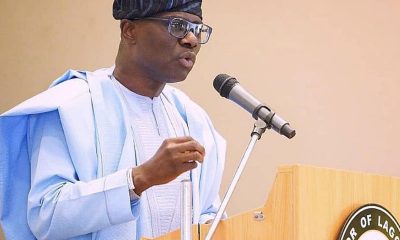

Sanwo-Olu swears in 38 commissioners, special advisers
-
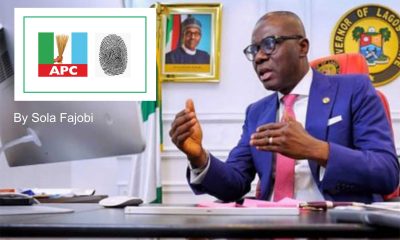

I refuse to be used and cowered, I’m voting Sanwo-Olu – Sola Fajobi
-
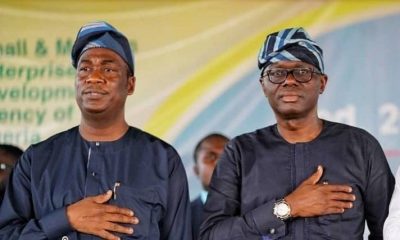

Two For The Vote Of One: Why Lagosians Need A Return Of The Sanwo-Olu, Hamzat Magical Synergy
-
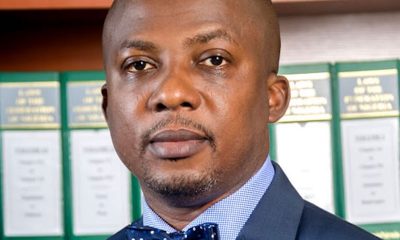

Tokunbo Wahab: An uncommon legal eagle soaring daily to a greater place in history
-


Reps Probe Attorney-General Of Federation, Malami, IGP Over Police Invasion Of Magodo Estate In Lagos
-
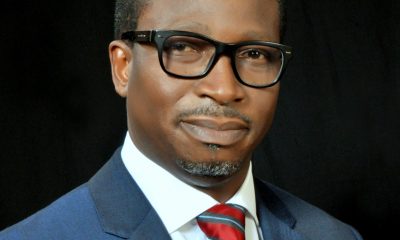

Hakeem Smith: Raising the Bar of Infrastructural Excellence in Lagos Public Schools
Interview
NAUB: MR PRESIDENT, WHO ARE THOSE PLANNING TO KILL THE ONLY FEDERAL UNIVERSITY THAT DOES NOT GO ON STRIKE?
Published
2 months agoon
March 3, 2024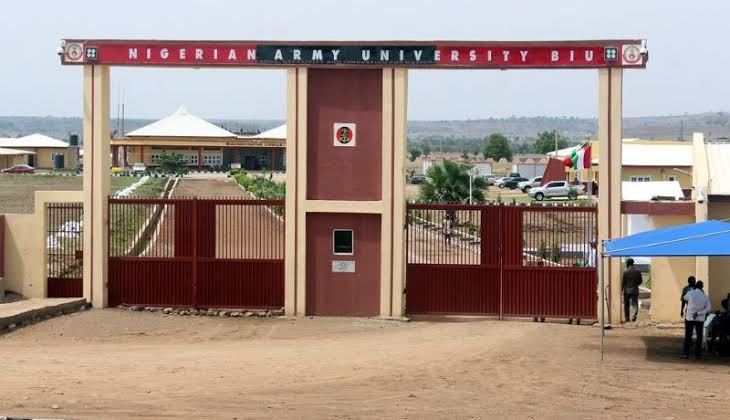
By femi Oyewale
Higher education in Nigeria, quite frankly, is facing immense challenges including but not limited to poor infrastructure, unrealistic academic calendars resulting in extra years against stipulated durations, lack of teaching equipment, social menace, poor funding, amongst others.
Interestingly, Nigerian Army University, Biu (NAUB) is quite unique from other federal universities in the sense that since inception, there has not been any issue of strike, cultism, protest, or anti-social conduct.
Rather, the university is reputed for its excellent condition of learning environment.
This was aptly covered by the Governor of Borno State, H.E Professor Babagana Umara Zulum through his deputy during the maiden edition of the convocation ceremony of NAUB on Saturday, October 28th, 2023 at the University’s main campus ( note not temporary campus within five years of existence) in Biu, Borno State.
The Borno State governor said he was physically present at the groundbreaking ceremony of the foundation laying stone of NAUB five years ago, and he is impressed by what he has seen adding that it must take military precision and focus to put in a full-fledged and functional university on a barren land in such a short period.
The Governor further thanked the Federal Government, the Nigerian Army, the traditional rulers, scholars and academics philanthropist, industrialists, associates and men and women of goodwill from within and outside Borno State for the selfless service of gradually re-modelling the future of Borno State in particular and Nigeria in general and for putting Borno State on the path of further greatness through the Nigerian Army university, Biu.
Why then do we plan to abort such a great independent institution of learning known as a barrier breaker and line crosser by merging it with NDA whose missions and visions are not in tandem with each other
Why cut short the dreams of such noble ideas via politics?
Are there those who do not want a stable educational system in Nigeria?
Are there external forces or their agents at home trying to destroy a good foundation for a stable educational system in Nigeria?
Is NAUB in competition with the private universities?
Are there big shots who benefit from a chaotic educational system in Nigeria?
Are there some subterranean forces working within the system to achieve the Boko Haram objective that “education is sin”?
The words of Governor Zulum rings a wise bell when he said that Boko Haram insurgents have achieved their objectives if the university is scrapped.
“Therefore, we appeal to Mr. President to look into this issue so that the Army University Biu would remain a university… because of the importance of education in this part of the country, where Boko Haram is saying that education is forbidden. And I think that by allowing this Army university to be scrapped, they might have achieved one or two of their objectives,” he said.
The governor noted that, for over a decade, Borno State has been facing a serious crisis that has denied many children access to education.
“Therefore, this university is very important to not only the people of Borno State but our neighbouring states,” he said.
Look at the Western countries that started with military polytechnics that propelled revolution in military equipment development.
Many of these developed countries collaborated jointly through civil-military research.
The Swedish Defence University established like NAUB is Sweden’s leading resource in, and first choice for, education, training and research in the management of crisis, war and periods of tension in the leadership of both civil and military agencies. The Swedish Defence University is an accredited institution for academic education for military and civilian students and researchers where different experiences, approaches, and traditions come together. It has become a hub for both national and international students.
It might shock you to know that American Military University (AMU) and American Public University (APU). APUS is wholly owned by American Public Education, Inc., a publicly traded private-sector corporation that offers associates, bachelors, masters, and doctoral degrees, in addition to dual degrees, certificate programs and learning tracks.
During my NYSC, I served in the Nigerian Army School of Education (NASE), Ilorin, which is a renowned military institution focused on providing high-quality education and training for Nigerian Army personnel and civilians. So why the proposed merger of NAUB?
Interestingly, the Nigerian Army University Biu provides such a platform for the Nigerian military towards technological innovation, research, and development in varied fields for national defence and security breakthroughs like many modern nations. In fact, instead of downgrading the Nigerian Army University, many more Army universities should be established in Nigeria. That is the way out for a caricature type of educational system that has failed to have stability over the years.
Who is not interested in seeing that a federal university graduates its students within the regular course time frame?
Must programmes of all federal universities be easily disrupted. A course of 4 or 5 years ends up taking over 6 to 7 years to complete. The worst part is that many universities end up in a crash programme to be able to cover up for the lost times. The terrible damage to these universities’ products is the very low standard of graduates.
Who wants the Nigerian educational system to collapse completely? These are rhetorical questions the amiable president of the Federal Republic of Nigeria and all stakeholders should ask those proposing the merger to answer us publicly, else should let the matter die forever in the abyss of hasty decision.
Former Kaduna Central Senator, Shehu Sani, says Minister of Interior, Olubunmi Tunji-Ojo, has no case to answer regarding the contract awarded to a company linked to him by suspended Minister of Humanitarian Affairs, Betta Edu.
Sani, in a chat with The Whistler, said Tunji-Ojo did not violate any public service law since he resigned from the company years ago.
” It could have been a conflict of interest if he hadn’t resigned.
The senator further said it is “not his ministry (that awarded contracts), and companies have the right to pursue businesses anywhere.
“Edu’s case is very clear and can’t be equated with that of a company associated with Hon Ojo.
“Legally, he can’t be held to account on this matter.
“Let’s not be distracted,” Sani said.
“The extant provision of the law under the 1999 Constitution is that anybody who is a public servant cannot engage in any business other than farming,” said Nelson Kebordih, a senior lawyer whose interest is in public policy.
He said the implication of the law is “that a person must be in active control and directorship of the company in the management of any enterprise.
“You are permitted to own shares because owning a share does not put you in the day-to-day management of the company or any enterprise.
“If he (Tunji-Ojo) has resigned from being a director, the law does not stop him from owning shares in the company,” he stated.
The former lawmaker’s position aligns with the 2008 Federal Service Rules on Chapter 4 which states that “Public officers are not prohibited from holding shares in both public and private companies operating in Nigeria or abroad except that they must not be Directors in private companies, and may only be Directors in public companies if nominated by Government.”
Following the suspension and quizzing of Edu, concerning alleged financial sleaze, the Minister of Interior has come under pressure to resign or equally be suspended by the president after it emerged that his company, New Planet Project Ltd, also received a contract from Edu.
Edu had awarded some companies contracts, some of which were unregistered with the Corporate Affairs Commission (CAC) raising concern of fraud and illegality.
Tunji-Ojo is also being pressured to step down with many commentators saying he has flouted the Public Service Rules which barred public servants from being awarded contracts or contracting any business except farming.
But the Minister while speaking on television explained that he had resigned since 2009 from the company.
“Almost five years ago, I resigned as director of the company, so I’m not a director. I resigned on 1st of February, 2009, you can take that to the bank,” the minister had said.
Interview
‘The Coleman Wires and Cables Business Story is a Journey From Grass to Grace’
Published
4 months agoon
December 18, 2023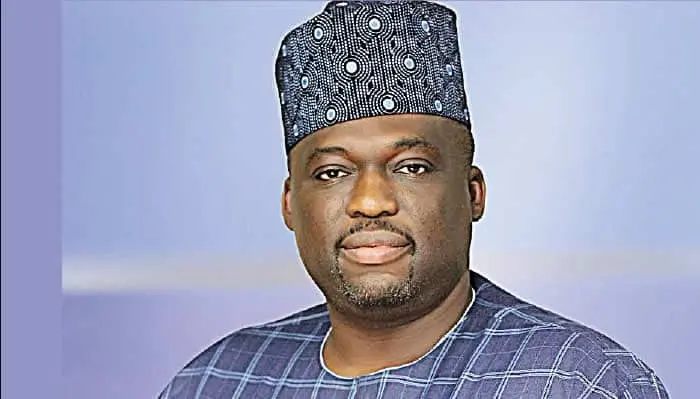
On the sidelines of the 12th Practical Nigerian Content (PNC) organized by the Nigeria Content Development and Monitoring Board (NCDMB), Mr. George Onafowokan, the Managing Director/CEO of Coleman Technical Industries Limited, a leading Nigerian brand manufacturer of wires and cables, shared secrets to his business success amid recent national and global economic challenges. Onafowokan maintains that as a Nigerian, one can start a small business and grow organically into a big global competitor…..
What do you mean when you said Coleman Wires and Cable’s story is one of “grass to grace”?
Coleman Wires and Cable was registered as a company in 1975, but we began as a small-scale business in 1996. In 2021, we had to restructure our operations to overcome the setbacks we faced from the beginning, and that’s when I became the Managing Director.
Our story is one of grassroots to grace. Through investing time and effort over the years, we were able to systematically grow from a micro-small company into a small, medium, large, and extremely large company in terms of size. Our business vision started small, but we strategically expanded it. Please note, our aim was not to become the largest company, but it began with the goal of being the preferred wires and cable choice for Nigerians in terms of quality.
Subsequently. we found that every Nigerian preferred locally made cables over the foreign imported ones. So, the question of why we can’t build a company capable of servicing the entire nation and the global market arose; with this, our vision expanded. We progressed from a humble factory to a ripple plant that became the largest in West Africa at the time it was built. Starting out from 20,000 square meters, we expanded to 30,000 square meters and further into the Shagamu plant, which began with over 100,000 and has grown to over 350,000 square meters today.
We diversified into other products, such as high-voltage cables, and we became the first in the country and in West Africa. This achievement made Nigeria the fifth country in the world to produce such cables. Today, more than fifty percent of Coleman’s products are not produced by any other company in Nigeria, West Africa, and most parts of sub-Saharan Africa. This accomplishment is a testament to the story developed by a predominantly 99 percent Nigerian team. It illustrates that it is possible to be Nigerian and organically grow into a global competitor.
Could you provide some insight into your personal background for the readers?
Certainly! I am George Onafowokan, the second generation of the Onafowokan family, born into the distinguished lineage of Asiwaju Solomon Kayode Onafowokan. He is currently the second Asiwaju of Remo, succeeding Chief Obafemi Awolowo, and is well-regarded as a business mogul. Personally, I am a family man with a spouse and children.
I pursued my first degree in Accounting and Finance in the UK, followed by a postgraduate degree in Information and Management. With a penchant for improving processes and a dedication to giving back, I often find myself engrossed in thoughts on how to enhance various aspects of life.
Having witnessed the success of companies I’ve mentored in Nigeria, I am committed to building the capacity of individuals and small to medium-scale businesses. My guiding principle, which I consider my calling, is to contribute to the growth and improvement of others over time.
Reflecting on my upbringing, my father’s journey serves as a true “grass to grace” story. From humble beginnings in a one-bedroom apartment, he worked his way up to become well-educated and stand out among his peers. However, my perspective evolved when, at the age of twelve, my aunt imparted valuable advice. She encouraged me to cease complaining and adopt the mindset that my parents served as vessels for me to enter the world. Once in the world, their responsibility concluded. Embracing this philosophy, I no longer felt entitled to my parents’ resources and committed to earning everything I needed. This mentality shaped my life principle—I don’t expect anyone to owe me anything. Consequently, I work diligently, understanding that neither a “yes” nor a “no” signifies offense or entitlement.
Was Coleman Wires and Cables your first business?
No, Coleman was not my first business; it is a family business. I started my own business when I was young. At the age of sixteen, I ventured into my first wine business. By the time I completed university, I had my own business in the UK, specializing in financing and exporting to Nigeria using containers. My initial entry into the cable business involved supplying raw materials, and coincidentally, one of my main clients was Coleman.
You spoke about replicating yourself; how can one access mentorship opportunities from you?
I am one of those who don’t believe that you can run a business as a one-man show. Therefore, you have to build human capacity in every way, integrate it into your structure, empower the people around you, and let them handle their responsibilities. Personally, I have built a team around what I do. I started in a business where I handled every department myself, but today, I am not involved in those tasks anymore.
Most importantly, I empower them to effectively perform their jobs and give them a sense of belonging, so they feel that their contributions have value.
In many companies in Nigeria, you often find that the Managing Director or CEOs are the only individuals making decisions, while the rest are mere yes-ma or yes-sir. I wouldn’t run a business that way.
Are there mentorship opportunities for people outside your current team?
No, we have not fully structured it for everyone; we currently have a limited number, mostly for individuals already in the industry. However, from my work with the LCCI mentoring group and my team, I have found that what most people generally need is a simple understanding and mentoring to discover what aspects of their life or history they could improve upon or learn from.
What has Coleman been doing with the NCDMB?
For us, we are a success story of the Nigeria Content Development and Monitoring Board (NCDMB) because we have been working with the board since 2017. Prior to that, in 2008, I met with Senator Lee Maeba, who led the private bill for the local content law before it became an act in 2010. I could see the passion in the man when he talked about the whole idea, and from that passion, we took action. “Taking action” means we started putting our money where our mouth is, began examining areas in the law that affect business and expanding capacity, and we have succeeded in doing so. Over the years, it has been challenging to break into these oil and gas companies, but we have managed to do so. We primarily supply cables to their vendors, without handling any installation. We supply for NLNG projects, Shell, and Mobile. We have been able to provide cables that have never been produced by any other company in Nigeria.
In the face of business and economic setbacks, Coleman expanded. What did you do differently?
First, I think we took a strategic position to ensure our ability to continue operations. Second, we minimized our losses and restructured our capacity. One month before the Covid-19 shutdown, we had submitted a request for restructuring with our banks. We had slowed down, scrutinized all our positions, and had already started reducing the size of our business. By the time we entered the Covid-19 pandemic, we operated with the same number of staff for about a year. After Covid-19 started easing, we increased the number of staff. Therefore, we were somewhat prepared for Covid-19, and over the years in our business, we had already trained specific capacity. During Covid-19, we were able to build two factories without anyone coming from abroad. Covid-19 has, in a way, compelled everyone to enhance their in-country capacity.
In your panel discussion, you mentioned that the NCDMB should replicate the success in the petroleum industry in manufacturing. So, in concrete terms, what are you looking for to happen?
Replicating success in manufacturing means being intentional with manufacturers, ensuring that they perform well because there are not a lot of manufacturers. We need to be more deliberate, encourage more factories, open more businesses here, and manufacture goods instead of just assembling them. That is the focus I am emphasizing. There should be a deliberate action to build local capacity.
What is the future for Coleman?
The future for Coleman is still very bright. The opportunities have not stopped. We have two or three projects that are still ongoing, which will be finished by the first quarter of next year. The copper and aluminum factories are underway, the fiber-2 project, the expansion and completion of the Shagamu project, and our power project to increase our capacity from 16 to 24 megawatts. We are also looking to supply around West and Central Africa going forward in the next year, and later on, in East Africa. Our export plan is quite extensive, and we hope to see significant figures coming out of it, apart from Nigeria.
I believe we need to trust in the opportunities that abound in Nigeria, and in time, we are all going to reap the benefits. Regardless of the situation, Nigeria still finds its way to continue growing; and if given peace and the chance by the government, we would most likely see an upward swing in businesses by 2025.

Build a fabulous, all-year round wardrobe without breaking the bank – By Kunle Bakare (KB)

Boosting Health Access: Lasaco Assurance Supports NYSC Corps Members’ Health Mission”

Yahaya Bello absent as court adjourns, EFCC mulls military’s help to fish him out

EXPOSED: HOW SACKED NNPC BOSS BILLY AGHA SPENT OVER N100 MILLION ON HIS GIRLFRIEND’S ARABIAN BIRTHDAY PARTY

Just In: Covid-19: Socialite Bolu Akin-Olugbade passed on at Paelon Covid Centre, Ikeja.

IMO PCC COMMISSIONER, WILLY AMADI IN VIRAL THREESOME SEX VIDEO SCANDAL

Trending
-

 Society6 years ago
Society6 years agoEXPOSED: HOW SACKED NNPC BOSS BILLY AGHA SPENT OVER N100 MILLION ON HIS GIRLFRIEND’S ARABIAN BIRTHDAY PARTY
-

 Society3 years ago
Society3 years agoJust In: Covid-19: Socialite Bolu Akin-Olugbade passed on at Paelon Covid Centre, Ikeja.
-

 Society3 years ago
Society3 years agoIMO PCC COMMISSIONER, WILLY AMADI IN VIRAL THREESOME SEX VIDEO SCANDAL
-

 News and Report5 years ago
News and Report5 years agoStanbic IBTC In Trouble As Supreme Court Orders Bank To Pay Customer ₦2.5Billion
-

 News and Report6 years ago
News and Report6 years agoDelta 2019: Gov. Okowa’s ambition cripples Asaba Airport upgrade…. • As ULO Construction Company pulls out • Okowa allegedly diverts N1.5Bn budgeted for the project
-
News and Report7 years ago
More Queen’s College pupils take ill…• Parents call for prosecution of ex-principal
-

 News and Report5 years ago
News and Report5 years agoGTBank Releases 2018 Full Year Audited Results …….. Reports Profit before Tax of ₦215.6 Billion
-
News and Report6 years ago
GTBank Releases H1 2018 Audited Results, Reports Profit Before Tax Of ₦109.6 Billion






